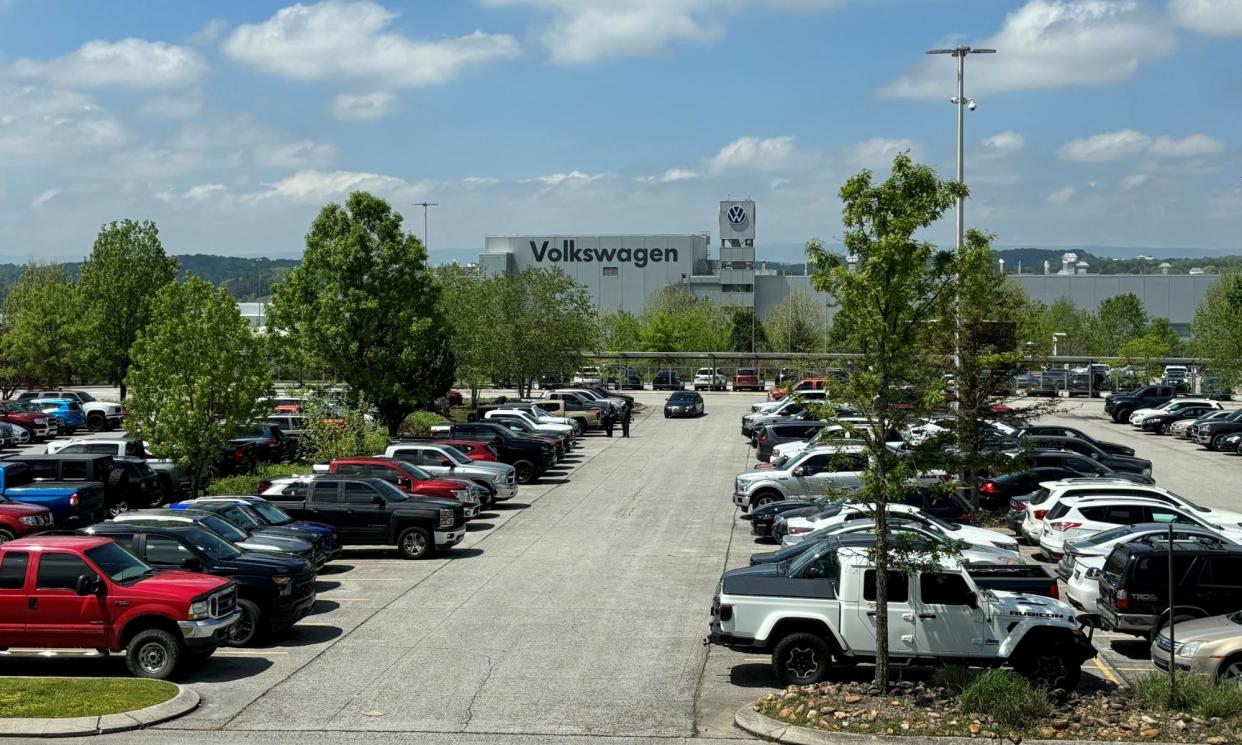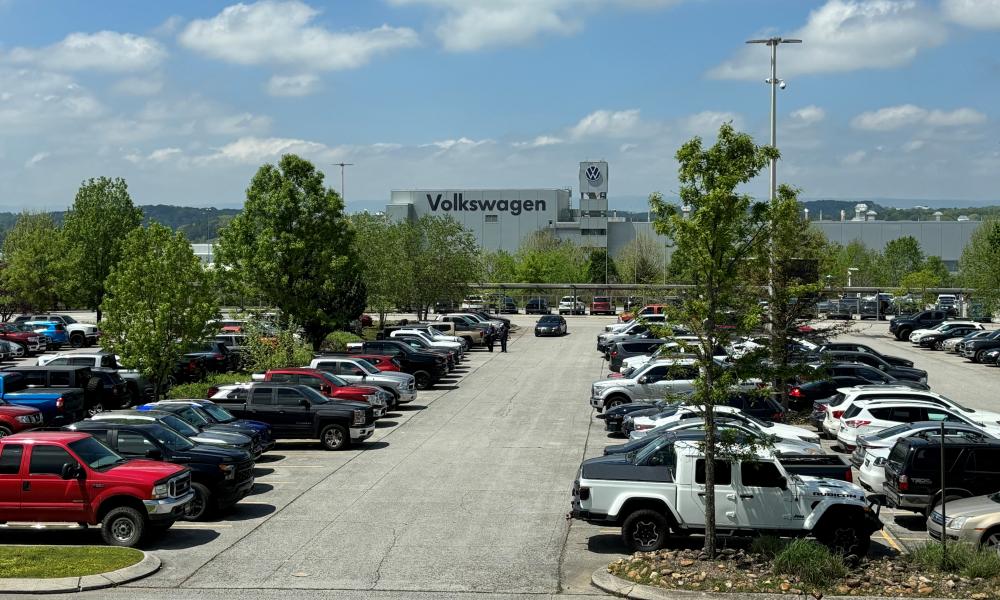
Volkswagen workers at the carmaker’s Chattanooga plant in Tennessee have voted to unionize with the United Auto Workers, a historic victory for the union and the labor movement’s efforts to expand to the southern United States.
The vote was the first union election to be held as part of the UAW’s ambitious organizing drive aimed at unionizing 150,000 workers at non-union auto plants around the US.
The win makes the Chattanooga factory the first auto plant in the south to unionize via election since the 1940s.
The union made the call late Friday night after some 2,200 ballots had been counted in favor of unionizing. The plant has about 4,300 eligible voters.
The victory is a milestone toward expanding union efforts in the southern US, where labor unions have historically faced aggressive opposition and union density has lagged far behind other parts of the US.
Related: Shawn Fain, president of the UAW: ‘Workers realized they’ve been getting screwed for decades’
Workers at a Mercedes plant in Vance, Alabama, are set to vote on whether to join the UAW in mid-May. Shawn Fain, the UAW president, is also targeting Tesla, whose boss, Elon Musk, has vigorously fought unionization efforts.
Workers at the plant in Chattanooga voted against the union in 2014 and 2019 in closely contested elections. In 2014, the UAW tried to partner with Volkswagen management to push for a works council similar to ones the company has in Germany, where Volkswagen is headquartered. But the plans faced significant backlash from anti-union groups and Bob Corker, the Republican US senator whose staff was in contact with anti-union groups over messaging before the election.
The UAW had been expected to win its latest vote given the firm support of workers beforehand, a quick turnaround from filing for the election to holding it, and a changing culture and landscape that has seen the US labor movement and the UAW surge in popularity after the UAW’s successful strike against the US’s domestic automakers last year.
Against that background, Republican elected officials had been less eager to come out against the UAW.
“The UAW is sending a strong signal that big change may be coming to places where most thought the labor movement was dead and buried,” said professor Sharon Block, executive director of the Center for Labor and a Just Economy at Harvard Law School.
“In the wake of the settlement of the strikes at the Big Three this fall, the transplant auto companies in the south gave their workers wage increases – the UAW bump – thinking that they could buy off their workers on the cheap. The UAW’s organizing campaign throughout the transplant companies in the south is a bet that workers can’t be bought off so cheaply. The UAW’s message to these workers is: ‘Don’t settle for crumbs.’”
A spokesperson for Volkswagen said in an email before the vote: “We respect our workers’ right to a democratic process and to determine who should represent their interests. We fully support an NLRB vote so every team member has a chance to a secret ballot vote on this important decision.
“Volkswagen is proud of our working environment in Chattanooga that provides some of the best-paying jobs in the area.”

